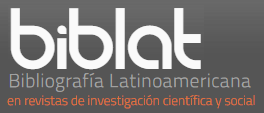Oral Hygiene: changes of knowledge and habits from a generation to another in a low-income population
DOI:
https://doi.org/10.5433/1679-0367.1997v18n1p25Keywords:
Tooth brushing, Dental Caries/Prevention & Control, Oral Hygiene, Quality of Life.Abstract
The dental caries have declined remarkably among the population of Londrina. In the developed countries, the use of fluoridated dentifrice (toothpaste) can be considered as the only common factor amongst the countries that showed a decline of caries prevalence. In Brazil, information about the impact fluoridation of the main dentifrice (toothpaste) sold in the market may have caused on the epidemiological profile as well as the extent of this measure on low-income population, are not available. In the present study, from a low-income population in the southern region of Londrina, 39 children, together with their mothers were interviewed with the purpose of verifying the knowledge held between the two generations (mothers and children). The questions applied by means of a questionnaire were about dental cleaning, use of toothbrushes, use of toothpaste, number of daily tooth brushing, period of time for hygiene and orientations received. The results show a significant difference of knowledge as well as of behavior between the two generations. The children brush their teeth for a long period of time, more often every day and care more well-informed by the dentist, the school the television or their own mothers. Their mothers, on the other hand, brush their teeth less and for a shorter period of time, besides being more careless concerning this subject, for 61,53% of the interviewed mothers stated that they never received any kind of information about dental hygiene.
Downloads
Downloads
Published
How to Cite
Issue
Section
License
Copyright (c) 2010 Semina: Ciências Biológicas e da Saúde

This work is licensed under a Creative Commons Attribution-NonCommercial 4.0 International License.
adopts the CC-BY-NC license for its publications, the copyright being held by the author, in cases of republication we recommend that authors indicate first publication in this journal.
This license allows you to copy and redistribute the material in any medium or format, remix, transform and develop the material, as long as it is not for commercial purposes. And due credit must be given to the creator.
The opinions expressed by the authors of the articles are their sole responsibility.
The magazine reserves the right to make normative, orthographic and grammatical changes to the originals in order to maintain the cultured standard of the language and the credibility of the vehicle. However, it will respect the writing style of the authors. Changes, corrections or suggestions of a conceptual nature will be sent to the authors when necessary.
This Journal is licensed with a license Creative Commons Assignment-NonCommercial 4.0 International.

















